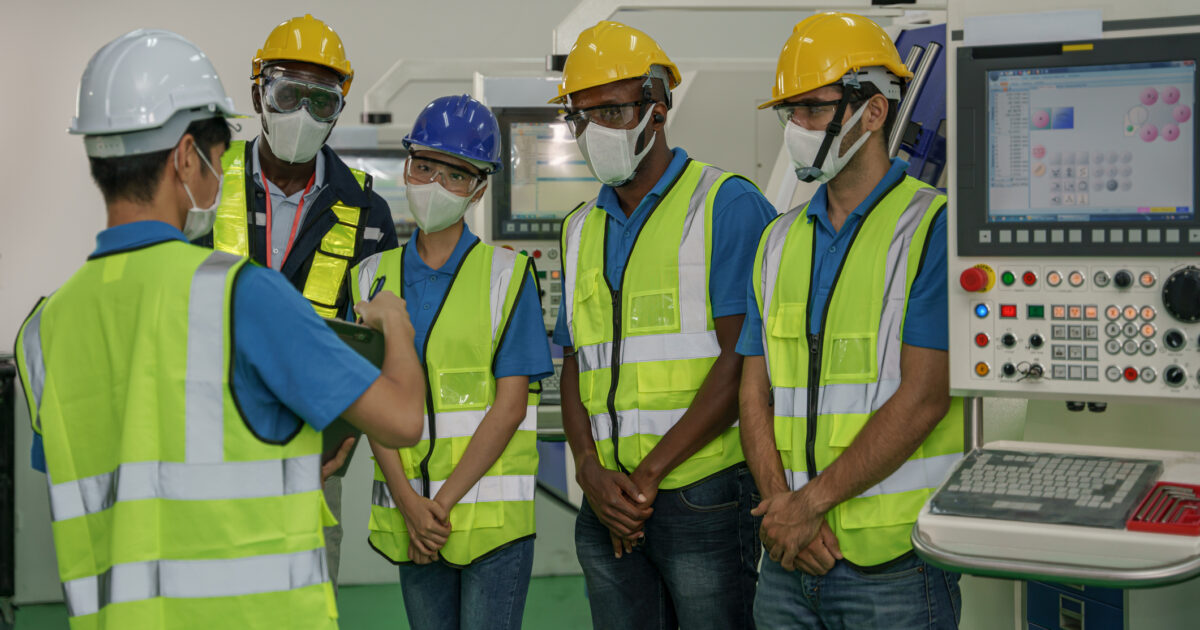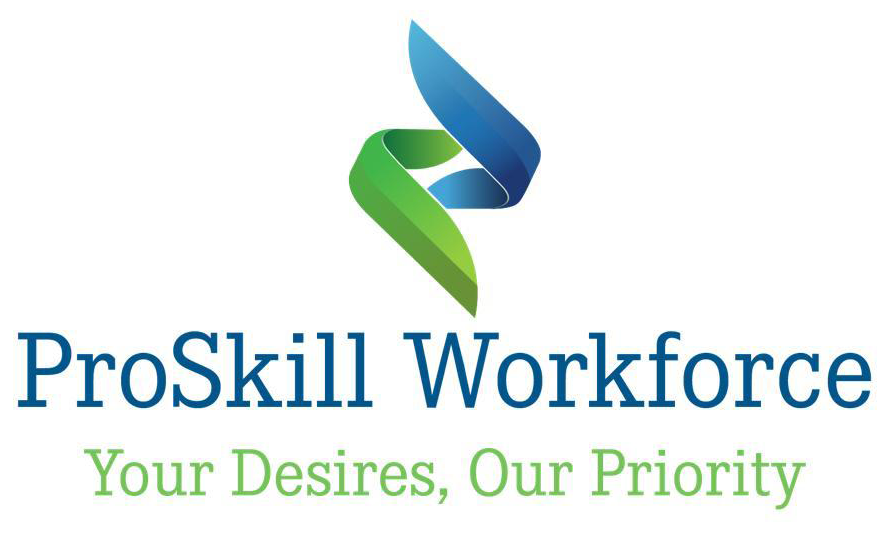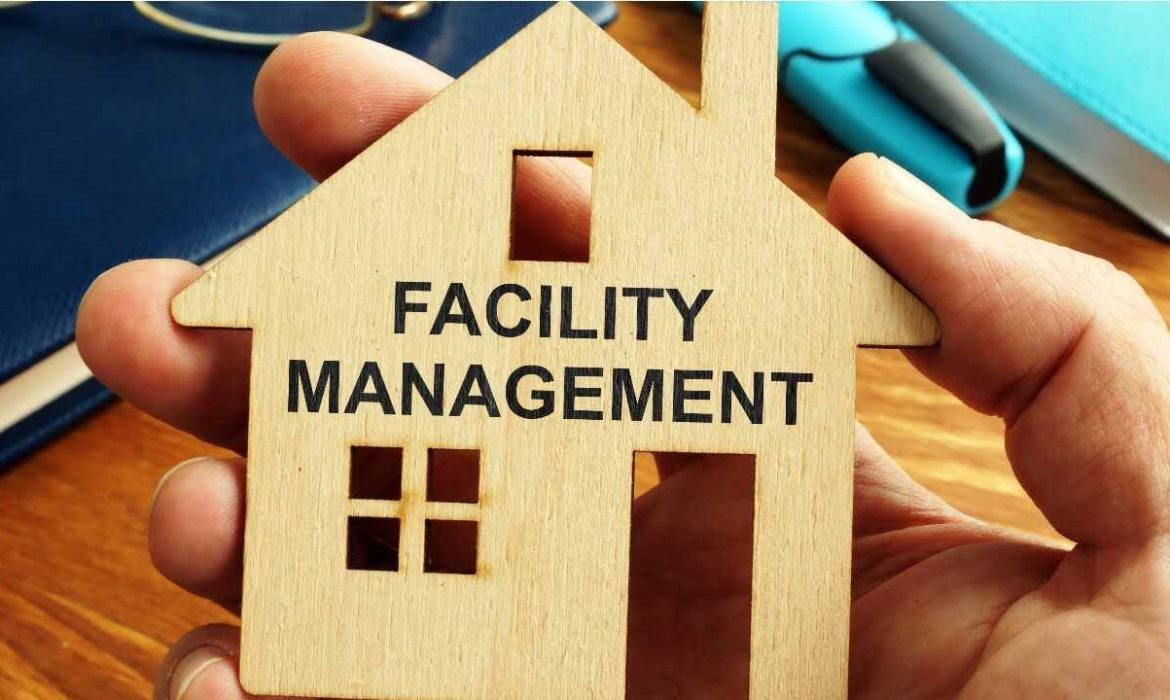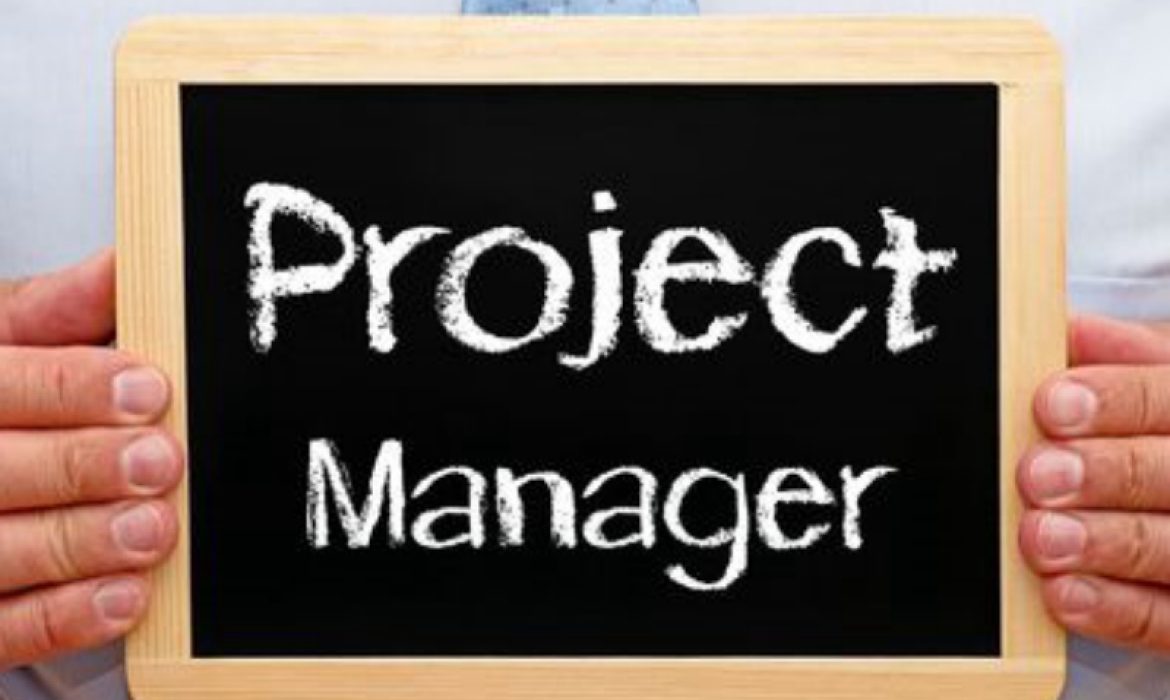Electrical Engineer Service in Bangladesh
Are you looking for the best Electrical engineer in Bangladesh? Then you are in the right place. Today I will discuss here how to find a good Electrical engineer and what qualities he should have. So let’s get started.
Electrical engineering plays a crucial role in modern life, from powering homes to running industries. But finding a skilled Electrical Engineer in Bangladesh can be challenging.
Whether you need residential wiring, industrial solutions, or renewable energy services, choosing the right expert ensures safety and efficiency. So, who offers the best electrical engineering services in Bangladesh? Let’s find out!
Why Electrical Engineering is Important?
Electricity is the backbone of modern civilization. From lighting homes to running factories, electrical engineering ensures seamless power distribution, efficiency, and safety. Without skilled electrical engineers, industries, businesses, and homes would face frequent outages and potential hazards.
Qualities of a Good Electrical Engineer
A top Electrical Engineer possesses:
- Strong problem-solving skills
- Knowledge of the latest electrical technologies
- Precision and attention to detail
- Commitment to safety
- Excellent communication skills
Top Electrical Engineering Services in Bangladesh

1. Residential Electrical Services
From wiring installations to fixing power outages, residential services ensure the safety and functionality of electrical systems in homes.
2. Commercial and Industrial Electrical Solutions
Businesses and industries require robust electrical systems to run machinery, lighting, and other critical operations.
3. Power System Design and Installation
This includes designing electrical grids, transformers, and distribution systems for large-scale projects.
4. Renewable Energy Solutions
With the rise of sustainable energy, many firms now offer solar panel installation and other eco-friendly electrical solutions.
5. Maintenance and Repair Services
Regular maintenance helps prevent sudden electrical failures and reduces long-term costs.
Benefits of Hiring a Professional Electrical Engineer
- Safety – Reduces risks of electrical hazards.
- Efficiency – Ensures optimal energy usage.
- Compliance – Meets national electrical codes.
- Cost Savings – Prevents costly electrical failures.
How to Choose the Best Electrical Engineer in Bangladesh
1. Experience and Expertise
Look for engineers with extensive experience in handling various electrical projects.
2. Licensing and Certification
Ensure that the engineer has the necessary licenses and certifications required by Bangladeshi law.
3. Customer Reviews and Ratings
Check online reviews and testimonials to assess the quality of services.
4. Availability and Response Time
Choose an electrical service provider that offers prompt and reliable support.
5. Pricing and Transparency
A good electrical engineer should provide transparent pricing with no hidden costs.
Best Electrical Engineering Companies in Bangladesh
The most popular electrical engineering company in Bangladesh right now is ProSkill Workforce BD. Below is a brief description of why they are popular:
1. Overview and Specializations: ProSkill Workforce BD is known for its expertise in industrial electrical solutions, offering innovative and cost-effective services.
2. Customer Satisfaction and Innovations: ProSkill Workforce BD prioritizes customer needs, with a strong focus on smart home automation and energy-efficient solutions.
3. Affordable yet Quality Services: For budget-friendly yet high-quality services, ProSkill Workforce BD is a popular choice among residential and commercial clients.
So, if you need service or have any questions, contact this number +88-01711258848 without delay.
Cost of Electrical Engineering Services
The cost depends on the complexity of the service. Average rates include:
- Residential wiring – BDT 10,000 – 50,000
- Industrial projects – Starts from BDT 100,000
- Solar panel installation – BDT 50,000 – 500,000 (depending on capacity)
Industrial Electrical Solutions
Industries need specialized electrical solutions to handle high power loads. This includes:
- Transformer installation
- Machine automation and control panels
- Backup power solutions
- Energy efficiency management
Residential Electrical Services
Homeowners require safe and efficient electrical setups, including:
- House wiring and rewiring
- Lighting solutions
- Electrical panel upgrades
- Smart home automation
Renewable Energy and Electrical Engineers
With rising electricity costs, many opt for solar energy solutions. Electrical engineers help design, install, and maintain solar panels, inverters, and battery storage systems.
Common Electrical Problems and Solutions

- Frequent power surges – Install surge protectors.
- Overloaded circuits – Upgrade the electrical panel.
- Flickering lights – Fix loose connections or faulty wiring.
Safety Measures in Electrical Engineering
- Use insulated tools
- Wear protective gear
- Follow the Bangladesh National Electrical Code
- Regularly inspect wiring and panels
Future of Electrical Engineering in Bangladesh
With rapid industrialization and smart city initiatives, the demand for skilled Electrical Engineers is growing. The integration of AI and IoT in electrical systems is shaping the future of power management.
Customer Reviews and Testimonials
Customer feedback is essential when choosing an electrical engineering service. Positive reviews indicate reliability, efficiency, and customer satisfaction.
Final Thoughts
Whether for residential or industrial needs, hiring the best Electrical Engineer in Bangladesh ensures safety, efficiency, and cost-effectiveness. Choosing experienced professionals guarantees high-quality service and long-term benefits.
FAQs About Electrical Engineer Service
1. How do I find the best Electrical Engineer in Bangladesh?
Check reviews, certifications, and experience before hiring a professional.
2. How much does it cost to hire an Electrical Engineer?
Costs vary based on the service type, starting from BDT 10,000 for residential projects.
3. What services do Electrical Engineers provide?
They handle wiring, installations, maintenance, industrial solutions, and renewable energy systems.
4. Are electrical engineering services in Bangladesh reliable?
Yes, reputable companies provide high-quality and safe electrical solutions.
5. Why is hiring a professional Electrical Engineer important?
They ensure safety, efficiency, and compliance with national electrical standards.
Safety Officer Service in Bangladesh | ProSkill Workforce BD
Workplace safety is crucial in every industry, from construction sites to corporate offices. Without proper safety measures, accidents can happen, leading to injuries, financial losses, and legal troubles. This is where a Safety Officer plays a vital role. In Bangladesh, the demand for professional Safety Officer services has been rising due to increasing workplace safety regulations and growing awareness. But how do you find the best safety officer service in Bangladesh? Let’s explore.
What is a Safety Officer?
A Safety Officer is a trained professional responsible for ensuring that workplaces comply with safety regulations and that employees follow proper safety protocols. Their role is to prevent workplace accidents and ensure a secure environment for workers.
What Does a Safety Officer Do?
A safety officer is responsible for:
- Conducting risk assessments and safety audits
- Ensuring compliance with national and international safety regulations
- Providing safety training to employees
- Investigating workplace incidents
- Implementing emergency response plans
By employing a qualified safety officer in Bangladesh, businesses can minimize risks and create a safer work environment.
Importance of a Safety Officer in Bangladesh
With industrialization and urbanization on the rise, workplaces in Bangladesh are becoming more hazardous. A Safety Officer helps companies comply with laws and protects workers from potential hazards, reducing risks and increasing productivity.
Key Responsibilities of a Safety Officer

1. Risk Assessment and Hazard Identification
A safety officer evaluates workplace risks and implements preventive measures to minimize hazards.
2. Conducting Safety Training Programs
Training employees on safety protocols, proper equipment usage, and emergency procedures is a vital responsibility.
3. Ensuring Compliance with Safety Regulations
Safety officers ensure that businesses meet all regulatory requirements and follow best practices in workplace safety.
4. Emergency Response Planning
They develop emergency response strategies to handle workplace incidents effectively and minimize damage.
How to Choose the Right Safety Officer Service in Bangladesh
When selecting a safety officer service, consider the following:
✅ Certification & Experience (e.g., NEBOSH, IOSH, OSHA)
✅ Industry-Specific Expertise (Construction, Garments, Manufacturing, etc.)
✅ Compliance with Local & International Safety Standards
✅ Availability of On-Site and Remote Safety Consultation
✅ Positive Client Reviews and Track Record
Best Safety Officer Service Providers in Bangladesh
When choosing a safety officer service, it’s essential to consider experience, certification, and industry expertise. Here is a description of the security officer services provided by this service within Bangladesh:
ProSkill Workforce BD Pte Ltd
- Certified safety officers with industry expertise
- Customized workplace safety training programs
- Compliance with Bangladesh Labor Act & Fire Safety Regulations
- Specializes in industrial and construction safety
- Provides OSHA-compliant safety training
- Offers 24/7 emergency safety support
- ProActive Safety Services
- Expertise in factory, garment, and chemical plant safety
- Fire risk assessment and emergency drills
- Certified safety auditors for ISO compliance
So, for those of you who want to receive the service, Contact Us Today!
Benefits of Hiring a Certified Safety Officer
- Reduces workplace accidents
- Ensures legal compliance
- Improves employee morale
- Enhances company reputation
- Reduces financial liabilities
Certifications and Training for Safety Officers

In Bangladesh, recognized certifications include:
- NEBOSH (National Examination Board in Occupational Safety and Health)
- IOSH (Institution of Occupational Safety and Health)
- OSHA (Occupational Safety and Health Administration)
- Diploma in Occupational Health & Safety
Cost of Hiring a Safety Officer in Bangladesh
The cost varies based on experience, industry, and certification. Generally, a full-time Safety Officer can charge between BDT 30,000 to BDT 100,000 per month, depending on the job requirements.
Challenges in Workplace Safety
- Lack of awareness about safety measures
- Inadequate training for workers
- Non-compliance with government safety regulations
- Budget constraints in hiring safety professionals
Government Regulations for Workplace Safety in Bangladesh
Bangladesh has several safety laws, including:
- Bangladesh Labor Act, 2006
- Fire Prevention and Fire Fighting Act, 2003
- Bangladesh National Building Code (BNBC)
These laws require organizations to maintain strict safety measures in the workplace.
Future of Workplace Safety in Bangladesh
With growing awareness and stricter government regulations, workplace safety is improving. Companies investing in safety officers and training programs will benefit in the long run.
Conclusion
Ensuring workplace safety is not just a legal requirement but a business necessity. Hiring the best safety officer service in Bangladesh can help companies maintain a hazard-free environment while improving operational efficiency.
If you’re looking for top safety officer services in Bangladesh, choose a provider with proven expertise and a strong reputation in the industry.
FAQ About Safety Officer Service in Bangladesh
1. Why is a Safety Officer important in a company?
A Safety Officer ensures compliance with safety regulations, preventing accidents and improving workplace security.
2. How do I hire a qualified Safety Officer in Bangladesh?
Look for certifications, experience, and industry expertise. Many agencies provide trained professionals.
3. What industries need Safety Officers the most?
Construction, manufacturing, healthcare, oil & gas, and corporate offices require Safety Officers.
4. What are the key skills of a Safety Officer?
Observation, problem-solving, communication, leadership, and knowledge of safety regulations.
5. How much does it cost to hire a Safety Officer in Bangladesh?
Costs range from BDT 30,000 to BDT 100,000 per month, depending on experience and industry.
What Does Facilities Management Do? Roles & Responsibilities
When you think about maintaining a building or complex, what comes to mind? Most people picture things like fixing a broken light or cleaning floors. But what if we told you that facilities management (FM) involves a lot more than just these everyday tasks?
In fact, facilities management is a vast, integral part of making sure that any building, from offices to hospitals, runs smoothly and efficiently. Whether you’re in charge of a small office space or a large corporate campus, understanding what facilities management involves can help you ensure that everything functions seamlessly.
What Is Facilities Management?
Facilities management refers to the process of managing and maintaining the buildings and services that support the core business functions. It’s a combination of several services aimed at ensuring a building is safe, comfortable, and functional for its occupants. FM involves everything from cleaning and repairs to managing security, energy consumption, and even the layout of the space.
In simpler terms, facilities management is like a building’s caretaker, ensuring that all aspects are functioning well for the people who use the space daily.
Why Is Facilities Management Important?
Why should we care about facilities management? After all, the building is just a space, right? Well, not exactly. Think of facilities management like keeping your car running smoothly. Just like your car needs maintenance, oil changes, and checks to run at its best, facilities need constant attention to ensure safety, comfort, and efficiency.
Facilities management ensures that all systems, whether it’s the HVAC system, plumbing, or security, work without disruption. It can save a company a lot of money in repairs and downtime, enhance employee productivity, and even ensure compliance with legal regulations.
Key Roles and Responsibilities of Facilities Management

So, what does a facility manager actually do on a daily basis? While the job varies based on the size and type of building, some key roles and responsibilities remain the same across all sectors. Let’s break it down:
1. Maintenance and Repairs
Regular maintenance is at the heart of facilities management. This includes overseeing the repair of systems like plumbing, heating, cooling, electrical, and more. Facilities managers ensure that these essential services are up and running without interruption.
2. Space Planning and Utilization
A major part of the facilities management role is optimizing how a space is used. This includes planning office layouts, ensuring there’s enough space for everyone, and even considering ways to make spaces more efficient for better workflow.
3. Security and Safety
Safety is always a top priority in any building. Facilities managers ensure that safety procedures are in place, such as fire drills, first-aid kits, and security systems. They also keep an eye on building compliance with local health and safety regulations.
4. Vendor and Contractor Management
Many tasks, such as landscaping, cleaning, or maintenance, require third-party vendors or contractors. A facilities manager works closely with these external parties, ensuring that they meet the required standards and deadlines.
5. Sustainability and Energy Management
In today’s world, environmental sustainability is more important than ever. Facilities management often includes overseeing energy usage, managing waste, and implementing green building practices that reduce the environmental footprint of a building.
Key Skills Required for Facilities Management
1. Technical Skills
Facilities managers need a strong technical background to understand and manage the various systems within a building. This could include knowledge of HVAC systems, electrical work, plumbing, and general building maintenance. Being tech-savvy is increasingly important as technology continues to play a larger role in FM operations.
2. Project Management
Facilities management often involves managing projects, whether it’s overseeing a renovation, upgrading systems, or implementing new technology. Facilities managers need strong project management skills to ensure that projects are completed on time, within budget, and to the required standard.
3. Communication Skills
Good communication is crucial in facilities management. Facilities managers need to liaise with employees, management, vendors, and contractors regularly. They must be able to communicate issues and solutions clearly and work effectively with various stakeholders.
4. Problem-Solving Skills
Problems are inevitable in facilities management, whether it’s an equipment malfunction, a space planning issue, or a safety concern. Facilities managers must be skilled problem solvers who can quickly assess situations and come up with effective solutions.
5. Organizational Skills
From managing budgets to overseeing a variety of maintenance tasks, organizational skills are a must for facilities managers. They need to be able to prioritize tasks, manage multiple responsibilities at once, and keep everything running smoothly.
Facility Manager’s Day-to-Day Tasks
A facility manager’s workday can be hectic, filled with various tasks that range from coordinating with contractors to inspecting systems. But what does an average day look like?
Morning: Checking Systems and Handling Urgent Issues
A typical day might start by inspecting critical systems like HVAC, plumbing, and electrical setups. If anything is malfunctioning, it needs to be addressed immediately to avoid costly disruptions later.
Midday: Managing Vendors and Contractors
After the morning checks, the manager might spend time overseeing third-party vendors for cleaning, repairs, or construction projects. This requires good communication skills to ensure that everything runs smoothly.
Afternoon: Budgeting and Long-Term Planning
The afternoon may involve reviewing the budget for ongoing projects, upcoming expenses, or energy consumption. Facility managers may also be involved in planning for future expansions or upgrades to the building.
Maintenance Management
When it comes to keeping a building operational, effective maintenance management is key. It covers everything from regular inspections of HVAC systems to the timely repair of broken elevators. Facilities managers create schedules for preventive maintenance to avoid expensive emergency repairs.
Regular Checks: Facility managers make sure that all equipment and systems are checked on a scheduled basis.
Repairs and Upgrades: Any malfunctioning system needs immediate attention. Often, this requires coordinating with internal or external maintenance teams.
Health, Safety, and Compliance
Health and safety are critical components of facilities management. Facility managers ensure that buildings comply with local, state, and federal regulations regarding safety, accessibility, and cleanliness. This includes:
- Ensuring proper fire safety equipment
- Regular safety drills
- Maintaining cleanliness and sanitation
- Managing potential hazards like chemicals or dangerous equipment
Energy Management and Sustainability
Energy usage is a huge factor in both operational costs and environmental impact. Facilities managers often oversee initiatives to reduce energy consumption, such as implementing energy-efficient lighting, optimizing heating/cooling systems, and exploring renewable energy options. This is not only good for the planet but also saves companies significant amounts in utility bills.
Sustainability Practices: Adopting eco-friendly practices, such as recycling and waste reduction, is an essential part of modern facilities management.
Space Planning and Optimization
Effective space planning ensures that every square foot of a building is used efficiently. For offices, this may mean reorganizing layouts to increase productivity or finding creative ways to accommodate more employees in smaller spaces. In larger buildings, optimizing space can help reduce operational costs and increase workflow efficiency.
Space Utilization: Facilities managers analyze how spaces are used and make adjustments as needed to maximize both comfort and functionality.
Vendor and Contractor Management
Whether it’s hiring a cleaning crew or arranging for repairs, facilities managers often work with multiple vendors and contractors. They are responsible for negotiating contracts, ensuring the quality of work, and making sure that all tasks are completed on time.
Vendor Coordination: Managers act as liaisons between contractors and the building’s occupants, ensuring that expectations are met.
Technology in Facilities Management

Technology is transforming how facilities management is done. From automated systems for lighting and temperature control to advanced security monitoring, tech plays a vital role in modern FM.
Smart Building Technologies: With the rise of smart technologies, facilities managers can monitor and control various systems remotely, improving both efficiency and cost-effectiveness.
Budgeting and Financial Management
A large part of facilities management involves keeping track of costs. Managers are tasked with creating budgets for maintenance, repairs, and upgrades, ensuring that spending stays within limits. They also track ongoing operational expenses like utilities and staff salaries.
Emergency Preparedness and Risk Management
Emergencies can arise at any time, whether it’s a natural disaster, a fire, or a power outage. Facilities managers must ensure that buildings are prepared for such events. This includes creating emergency plans, managing evacuations, and ensuring that necessary supplies are available.
Challenges in Facilities Management
While the role is rewarding, it comes with its own set of challenges. For one, facilities managers must always stay ahead of the curve when it comes to technology and compliance. They also need to balance budgets while ensuring that the building remains comfortable and safe.
Conclusion
Facilities management is a vital aspect of any organization or building, ensuring that everything runs smoothly, efficiently, and safely. From maintenance to sustainability, the responsibilities are diverse and require a strong set of skills. A good facility manager can significantly impact a building’s overall performance, employee satisfaction, and operational costs.
FAQs
1. What is the primary goal of facilities management?
The primary goal is to ensure that buildings and facilities run smoothly, safely, and efficiently for their occupants.
2. What are some key responsibilities of a facilities manager?
Responsibilities include overseeing maintenance, managing vendors, ensuring safety compliance, and optimizing space usage.
3. How does facilities management contribute to sustainability?
By implementing energy-saving practices, recycling programs, and green building initiatives, facilities management helps reduce environmental impact.
4. Is technology used in facilities management?
Yes, smart technologies are increasingly used to monitor systems and improve efficiency in areas like energy use, lighting, and security.
5. What challenges do facilities managers face?
Facilities managers must deal with balancing budgets, staying compliant with regulations, and managing unexpected emergencies or system failures.
Project Manager Service in Bangladesh | ProSkill Workforce BD
Have you ever wondered what separates a successful project from one that struggles to meet deadlines and budgets? The answer often lies in effective Project Manager Service. In Bangladesh, where industries are growing rapidly, the demand for professional project management services is at an all-time high. Let’s dive deeper into what these services entail and why they are crucial for success.
What Is a Project Manager Service?
A project manager service involves professional assistance in planning, executing, and overseeing projects to ensure they meet defined goals within a set timeframe and budget. It’s like having a captain who steers the ship in the right direction, ensuring smooth sailing through stormy waters.
Why Do You Need a Project Manager Service?

Projects often come with their fair share of challenges: tight deadlines, resource constraints, and unforeseen issues. A project manager service ensures:
- Clear communication between stakeholders.
- Proper allocation of resources.
- Timely completion of tasks.
- Risk mitigation strategies.
Think of it as having a roadmap and a guide to help you reach your destination without unnecessary detours.
Key Features of the Best Project Manager Services
When choosing a project manager service, look for the following key features:
- Experienced Professionals: Ensure the service has a team with proven expertise.
- Customizable Solutions: Every project is unique; opt for services that adapt to your specific needs.
- Effective Communication: Transparency and regular updates are crucial.
- Use of Advanced Tools: Technology enhances efficiency and accuracy.
- Strong Problem-Solving Skills: The ability to handle challenges is a must.
Benefits of Hiring a Professional Project Manager in Bangladesh
Hiring a professional project manager offers numerous benefits:
- Improved Efficiency: Streamlined processes save time and resources.
- Cost Savings: Avoid costly mistakes and optimize resource use.
- Risk Management: Identify and mitigate potential risks early.
- Focus on Core Business: Let the experts handle project details while you focus on your primary objectives.
Industries That Benefit From Project Management Services
Many industries in Bangladesh can reap the rewards of expert project management, including:
- Construction: For timely and budget-friendly project completion.
- IT and Software Development: To manage complex development cycles.
- Healthcare: Ensuring efficient operations and expansions.
- Manufacturing: Streamlining production processes.
- Education: Organizing large-scale initiatives like curriculum development or infrastructure upgrades.
Top Project Manager Service Providers in Bangladesh
Bangladesh is home to several reputable project manager service providers. Some of the top names include:
- ProSkill Workforce BD: Known for its expertise in construction and infrastructure projects.
- ProSkill Workforce BD: Specializing in IT and digital transformation.
- ProSkill Workforce BD: Experts in healthcare and manufacturing sectors.
How to Choose the Right Service for Your Needs?
Selecting the perfect project manager service involves:
- Defining Your Goals: Understand what you aim to achieve.
- Researching Providers: Compare services, expertise, and client reviews.
- Checking Certifications: Ensure the team has relevant credentials.
- Requesting a Proposal: Assess their approach to your project.
- Evaluating Compatibility: Communication and understanding matter.
The Role of Technology in Project Management
Modern project management heavily relies on technology. Tools like Microsoft Project, Trello, and Asana help managers:
- Track progress.
- Allocate resources.
- Monitor budgets.
- Collaborate with teams.
Using these tools is like having a virtual assistant that keeps everything on track.
Challenges in Project Management and How Experts Overcome Them

Every project faces challenges, such as:
- Scope Creep: When the project’s scope expands unexpectedly.
- Resource Shortages: Limited access to skilled labor or materials.
- Tight Deadlines: Balancing speed and quality.
Experts tackle these issues by setting clear boundaries, proactive planning, and maintaining open communication.
Case Studies: Successful Projects in Bangladesh
Example 1: Digital Transformation
ProSkill Workforce BD Management successfully transitioned a local company’s operations to a digital platform, increasing efficiency by 40%.
Example 2: Infrastructure Development
ProSkill Workforce BD Solutions completed a large-scale construction project ahead of schedule, saving millions in costs.
Tips for Working with a Project Manager
- Communicate Clearly: Share your expectations and concerns.
- Be Open to Feedback: Value their expertise.
- Set Realistic Goals: Ensure achievable timelines and objectives.
- Stay Involved: Regular check-ins foster collaboration
Future of Project Management Services in Bangladesh
With advancements in technology and increasing demand across industries, the future of project management services in Bangladesh looks promising. Companies are investing in training and tools, ensuring even better outcomes for clients.
Conclusion
In today’s competitive world, effective project management is no longer a luxury—it’s a necessity. By choosing the best project manager service in Bangladesh, you can ensure your projects run smoothly, on time, and within budget. Remember, the right service acts as a bridge between vision and reality, turning ideas into accomplishments.
FAQs About Project Manager
1. What is a project manager service?
A project manager service provides professional support in planning, executing, and overseeing projects to achieve specific goals efficiently.
2. Why should I hire a project manager?
Hiring a project manager ensures better resource allocation, timely completion, and risk mitigation, helping you focus on core business activities.
3. How do I choose the best project manager service in Bangladesh?
Define your goals, research providers, check credentials, and evaluate proposals to find the best fit for your needs.
4. What industries benefit most from project management services?
Industries like construction, IT, healthcare, manufacturing, and education gain significantly from these services.
5. What role does technology play in project management?
Technology streamlines processes, improves collaboration, and ensures accurate tracking and reporting of project progress.
Floor Supervisors Service in Bangladesh – Reliable & Efficient
Have you ever wondered who ensures the smooth flow of operations in busy environments like factories, hotels, or retail outlets? Meet the unsung heroes: floor supervisors. In Bangladesh, where industries and businesses are thriving, having the right floor supervisor can make all the difference.
They are the bridge between management and the workforce, ensuring productivity, quality, and teamwork. Let’s dive deeper into why floor supervisors are essential and how to find the best services in Bangladesh.
What Do Floor Supervisors Do?
Floor supervisors are the backbone of operational management. They oversee daily tasks, coordinate with staff, and ensure work is done efficiently and on time. Think of them as the captain of a ship, steering the team toward success while addressing any hiccups along the way.
Their responsibilities often include:
- Monitoring employee performance.
- Ensuring compliance with safety and quality standards.
- Resolving conflicts and maintaining harmony.
- Reporting to upper management.
Why Are Floor Supervisors Important?

Imagine a restaurant without someone ensuring orders are taken correctly, food is prepared on time, and customers are happy. Chaos, right? That’s where floor supervisors come in. They keep operations running smoothly and maintain order. Their presence ensures:
- Increased productivity.
- Higher employee morale.
- Better customer satisfaction.
- Improved overall efficiency.
Key Qualities of a Good Floor Supervisor
Not everyone can excel as a floor supervisor. It requires a unique blend of skills and qualities, such as:
- Leadership: The ability to guide and motivate the team.
- Communication: Clear and effective interaction with staff and management.
- Problem-Solving: Quick thinking to address challenges on the floor.
- Adaptability: Staying calm under pressure and adjusting to changes.
Industries That Rely on Floor Supervisors
Floor supervisors play a pivotal role across various sectors, including:
- Manufacturing: Ensuring smooth production lines.
- Retail: Managing customer service and inventory.
- Hospitality: Coordinating staff and guest satisfaction.
- Healthcare: Overseeing patient care and staff efficiency.
Benefits of Hiring Professional Floor Supervisors
Hiring professional floor supervisors offers several advantages, such as:
- Enhanced Efficiency: Tasks are completed faster and more accurately.
- Reduced Errors: Strict oversight minimizes mistakes.
- Improved Teamwork: They foster a collaborative work environment.
- Better Compliance: Adherence to industry regulations is ensured.
Challenges Faced by Floor Supervisors
Despite their critical role, floor supervisors encounter several challenges:
- Handling difficult employees.
- Managing tight deadlines.
- Dealing with resource constraints.
- Balancing multiple responsibilities.
How to Choose the Best Floor Supervisors in Bangladesh
Finding the right floor supervisor is crucial. Here are some tips:
- Check Experience: Look for individuals with relevant industry experience.
- Evaluate Skills: Focus on communication, leadership, and problem-solving abilities.
- Seek References: Ask for testimonials or recommendations.
- Ensure Training: Confirm they have undergone proper training programs.
Top Agencies Offering Floor Supervisors Services
In Bangladesh, several agencies provide professional floor supervisor services. Some of the leading ones include:
- ProSkill Workforce BD: Known for their experienced personnel.
- ProManage Services: Specializing in retail and manufacturing.
- WorkPro Bangladesh: Offering tailored supervision solutions.
Cost of Hiring Floor Supervisors in Bangladesh
The cost of hiring floor supervisors can vary depending on factors like industry, experience, and location. On average:
- Entry-level supervisors: BDT 20,000 – 30,000 per month.
- Experienced supervisors: BDT 40,000 – 60,000 per month.
- Freelance or temporary supervisors: BDT 1,000 – 2,000 per day.
Case Studies: Success Stories
Case Study 1: Retail Sector
A prominent retail chain in Dhaka saw a 30% increase in sales after hiring professional floor supervisors who streamlined operations and improved customer service.
Case Study 2: Manufacturing Industry
A garment factory in Chittagong reduced defects by 25% within six months of employing experienced floor supervisors.
Training and Development for Floor Supervisors
Continuous training is vital for floor supervisors to stay updated with industry trends and enhance their skills. Popular training areas include:
- Leadership development.
- Conflict resolution techniques.
- Technology integration in supervision.
Role of Technology in Floor Supervision

Technology has revolutionized floor supervision. Tools like ERP systems, real-time monitoring apps, and AI-driven analytics help supervisors:
- Track performance metrics.
- Identify bottlenecks.
- Enhance communication with the team.
Conclusion
Floor supervisors are indispensable in ensuring operational excellence. In Bangladesh, their role is even more critical as industries grow and competition intensifies. By hiring skilled and experienced supervisors, businesses can achieve greater productivity and success. Whether you’re in retail, manufacturing, or hospitality, investing in professional floor supervisors is a step toward a brighter future.
FAQs About Floor Supervisors
1. What are the primary duties of a floor supervisor?
Floor supervisors oversee daily operations, manage staff, ensure quality standards, and report to upper management.
2. Which industries benefit most from floor supervisors?
Industries like manufacturing, retail, hospitality, and healthcare rely heavily on floor supervisors.
3. How can I find reliable floor supervisors in Bangladesh?
You can find them through staffing agencies, job portals, or professional networks.
4. What skills should a floor supervisor have?
Key skills include leadership, communication, problem-solving, and adaptability.
5. Are there training programs for floor supervisors in Bangladesh?
Yes, several institutions offer training in leadership, conflict resolution, and technology for supervisors.
Best Business Service Management (BSM) Provider
Are you looking for the Best Business Service Management in Bangladesh? This blog will help you find the Best Business Service Management in Bangladesh. So without wasting time read this blog and find your information.
What is Business Service Management (BSM)?
Business Service Management (BSM) is a management approach that aligns a company’s services with its business goals. It connects various departments, such as IT, customer service, and operations, to ensure that all areas are working together to meet the company’s objectives. This is especially relevant in Bangladesh, where businesses are rapidly modernising to meet the demands of an increasingly competitive market.
Why is BSM Important for Businesses in Bangladesh?
BSM is essential in Bangladesh because it enables businesses to function more efficiently, adapt to market changes, and ultimately enhance customer satisfaction. For Bangladeshi businesses, BSM provides a structured approach to managing resources, reducing costs, and improving service delivery – all crucial in a country with growing industries and a dynamic consumer market.
Key Components of Effective Business Service Management
Successful BSM involves several core components that help businesses manage services effectively:
- Service Portfolio Management: Organizing and prioritizing services that align with business goals.
- Service Level Management (SLM): Setting clear performance standards and tracking adherence to these standards.
- Business Process Optimization: Continuously improving business processes to boost efficiency.
- IT and Operations Integration: Ensuring IT services support business objectives seamlessly.
- Customer Relationship Management (CRM): Understanding and addressing customer needs to enhance satisfaction.
Benefits of Implementing BSM Strategies
Implementing BSM strategies offers multiple benefits that can transform a business’s operational efficiency and service quality:
- Enhanced Productivity: Process simplification allows workers to concentrate on higher-value work, which boosts output.
- Cost Savings: Efficient resource allocation reduces wastage and saves money.
- Risk Reduction: Proactively managing risks ensures fewer disruptions in service delivery.
- Improved Decision-Making: Real-time data insights help leaders make better decisions.
How BSM Enhances Customer Satisfaction

In any business, the end goal is customer satisfaction. BSM enables businesses to anticipate customer needs, respond quickly, and deliver consistent service quality. For instance, companies in Bangladesh can use BSM tools to track service delivery performance, resolve issues quickly, and maintain high service standards, which leads to stronger customer relationships and loyalty.
Top BSM Service Providers in Bangladesh
Bangladesh has seen a rise in service providers specializing in BSM. Here are some of the leading providers:
Best BSM Service Provider Right Now ProSkill Workforce BD Pte Ltd
Overview of ProSkill Workforce BD Pte Ltd
ProSkill Workforce BD Pte Ltd is known for its commitment to customer satisfaction and rigorous safety protocols, ensuring reliable BSM services across diverse sectors.
Core Services
- Enhanced Service Quality
BSM improves the quality and reliability of services by ensuring that IT resources are effectively allocated to support business processes. - Improved Efficiency and Productivity
By automating tasks and streamlining workflows, BSM helps businesses reduce operational inefficiencies, allowing teams to work more productively. - Customer Satisfaction
Through optimized service delivery and quick issue resolution, BSM supports a better customer experience, increasing satisfaction and loyalty. - Cost Management
BSM helps control and reduce costs by maximizing the use of resources, automating repetitive processes, and minimizing downtime. - Real-Time Monitoring and Analytics
It provides tools for monitoring key performance metrics in real time, allowing businesses to make data-driven decisions and proactively address potential issues. - Scalability and Flexibility
BSM solutions are designed to support business growth, ensuring that systems and processes can scale as the organization expands. - Compliance and Risk Management
By establishing standardized processes and controls, BSM helps organizations maintain regulatory compliance and mitigate risks associated with IT and business operations.
Selecting the Right BSM Service Provider

Choosing the right BSM provider can significantly impact business success. Here are some tips for selecting the best BSM Service provider
- Assess Your Business Needs: Identify what you want to achieve with BSM.
- Evaluate Provider Experience: Look for a provider with a proven track record.
- Check for Scalability: Ensure the solution can grow with your business.
- Consider Budget and ROI: Balance the costs with the potential return on investment.
Steps to Implement a Successful BSM Strategy
A well-implemented BSM strategy involves careful planning and execution. Here’s a step-by-step guide:
- Define Objectives: Establish clear goals and outcomes you aim to achieve.
- Choose the Right Tools: Select BSM software that meets your requirements.
- Train Employees: Ensure employees understand how to use the BSM tools.
- Set Up Monitoring: Implement performance monitoring to track progress.
- Continuous Improvement: Regularly review and update BSM strategies based on feedback and data insights.
Challenges of BSM and How to Overcome Them
Despite its benefits, implementing BSM comes with challenges:
- Complexity of Integration: Bringing various departments together can be challenging. A phased approach can help simplify the integration process.
- Employee Resistance: Change can be difficult for employees. Communication and training can ease the transition.
- High Initial Costs: While BSM may require upfront investment, the long-term benefits often outweigh the costs.
Future Trends in BSM in Bangladesh
The future of BSM in Bangladesh looks promising as technology advances:
- AI and Automation: BSM tools are increasingly leveraging AI to automate tasks and improve efficiency.
- Data-Driven Decision Making: With better analytics, companies can make smarter, faster decisions.
- Focus on Customer Experience: BSM will continue to evolve with a stronger focus on delivering superior customer experiences.
Conclusion
The future of business in Bangladesh is being shaped by business service management. By integrating processes, aligning with customer needs, and optimizing resources, BSM offers a roadmap for success in a competitive landscape. For businesses looking to grow, adopting BSM practices is a strategic move that brings significant long-term value.
FAQs For Business Service Management (BSM) Provider
1. What is Business Service Management (BSM)?
BSM is a management approach that aligns services with business goals, optimizing processes and resources for efficiency.
2. How does BSM benefit businesses in Bangladesh?
BSM helps Bangladeshi businesses streamline operations, enhance customer satisfaction, and reduce costs, improving overall performance.
3. What are some challenges in implementing BSM?
Challenges include integration complexity, employee resistance, and initial costs, but these can be managed with planning and support.
4. How do I choose the right BSM provider?
Consider factors like provider experience, scalability, cost, and how well they meet your business needs.
5. What trends are shaping the future of BSM?
AI-driven automation, data analytics, and a focus on customer experience are key trends in the evolving BSM landscape.







